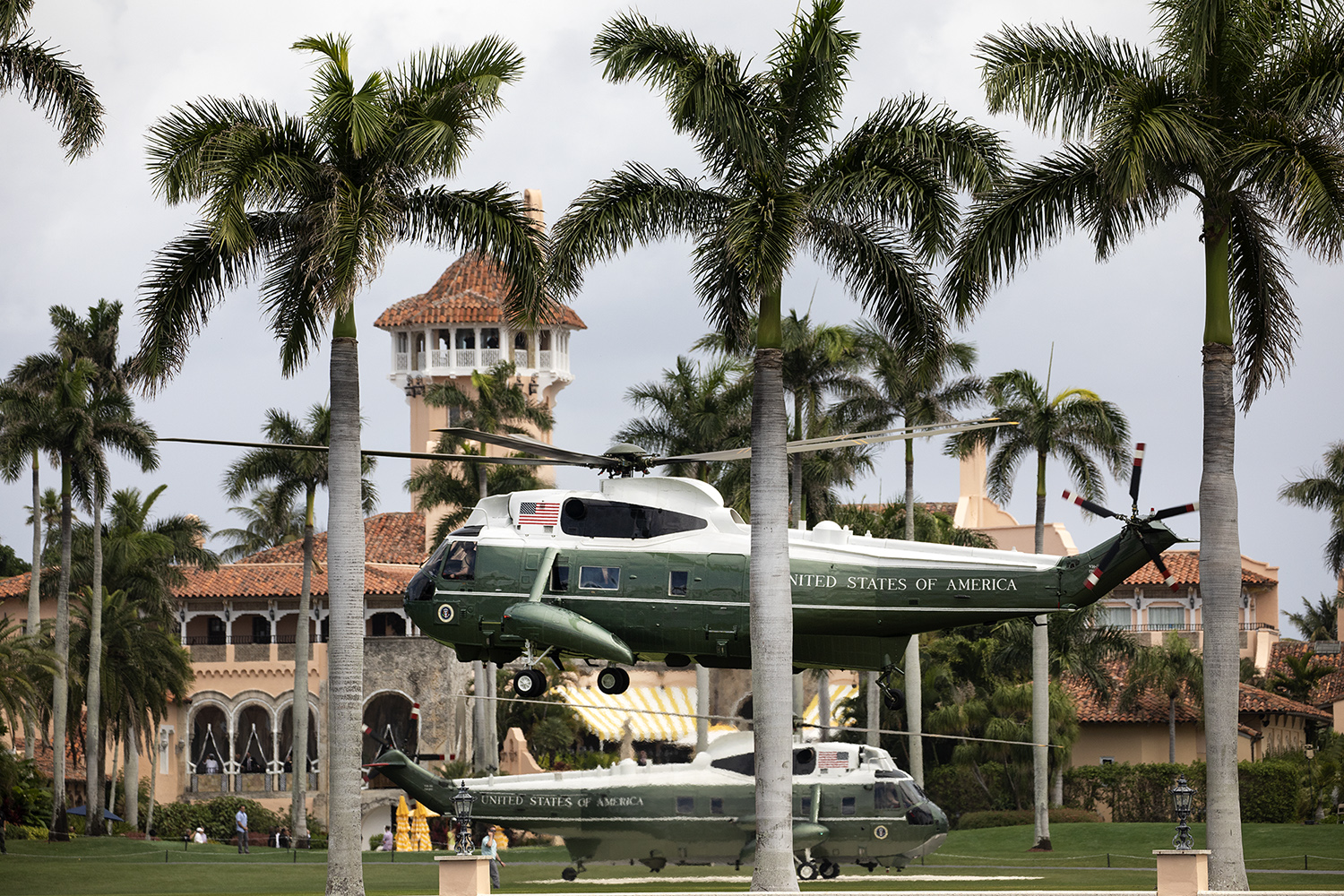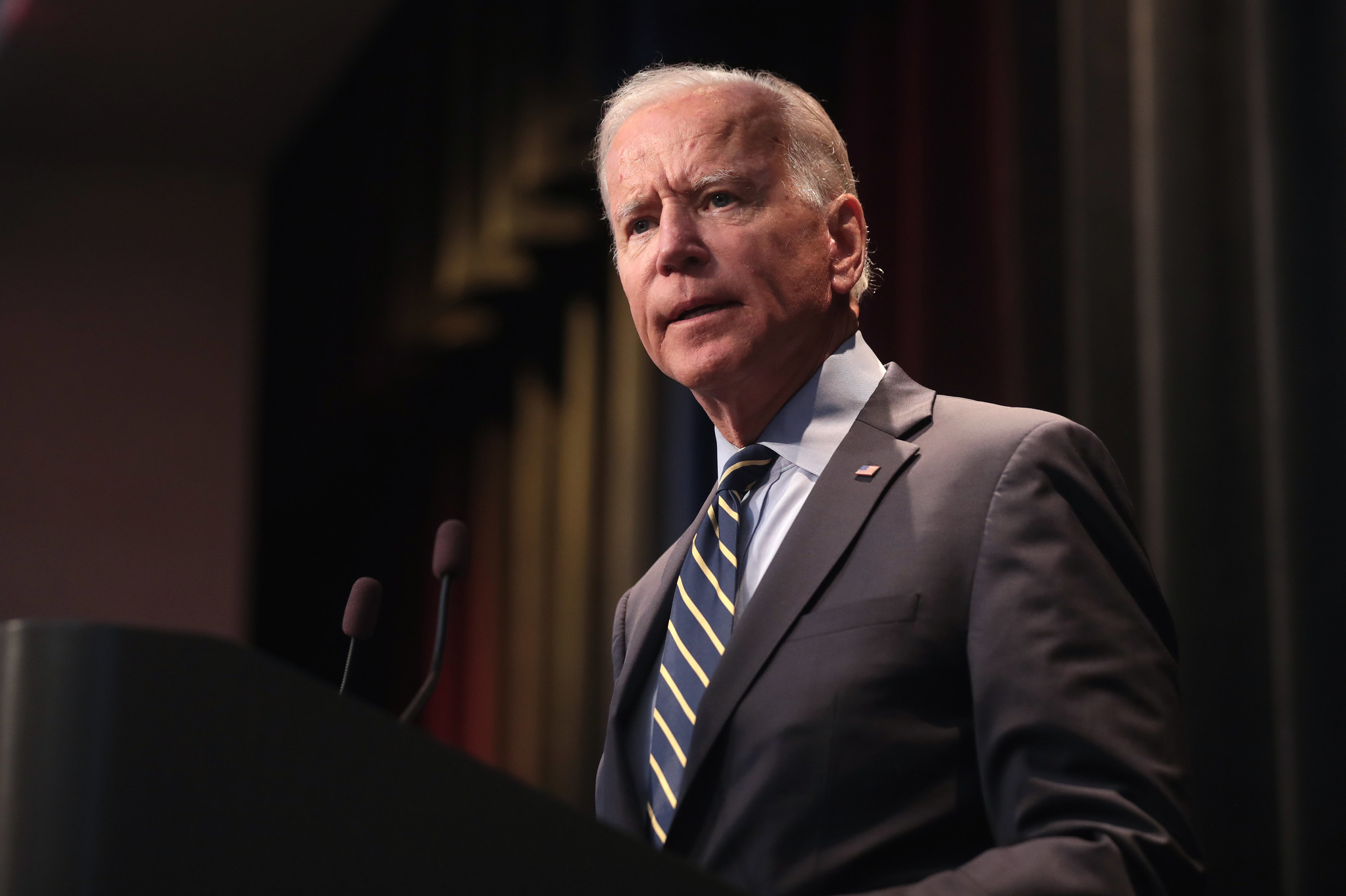The Eleventh Circuit Cleans Up the Mess
The much needed appellate intervention puts the Mar-a-Lago investigation back on track.

Published by The Lawfare Institute
in Cooperation With

The ruling Wednesday evening by a unanimous panel of the U.S. Court of Appeals for the Eleventh Circuit to slap a partial stay on a lower court’s ruling that froze the Justice Department’s Mar-a-Lago investigation should surprise nobody.
The decision by U.S. District Judge Aileen Cannon was a hot mess, as we and others detailed when she handed it down, and the grounds for an almost-inevitable appellate court intervention were obvious at the time. That said, the 29-page opinion is important in a number of respects.
For one thing, its unanimity and speed emphasize the fact that Judge Cannon’s interference in the Justice Department’s investigation was a gross impropriety, not a plausible legal position. That two of the panel members were, like Judge Cannon, appointed by President Trump further emphasizes that this is a matter of professionalism, not a matter of ideology or the sort of judicial philosophy that reasonably separates conservative from liberal jurists.
So too does the fact that the court ruled within 24 hours of the government’s final brief—and wrote in a per curiam opinion, that is, in the voice of the court itself, not of its individual judges. In short, giving the government relief from Judge Cannon’s injunction was a very easy call—one that required neither time nor any significant deliberation. Rather, the rate-limiting step in issuing this opinion was the speed with which judges of diverse political stripes could type.
The opinion also gives useful substantive direction as to the future of the case—and this direction is not friendly to Trump’s efforts to use the courts to slow down the Mar-a-Lago investigation. Most importantly, while the Eleventh Circuit emphasized that it was ruling on the narrow matter before it—whether to stay Judge Cannon’s ruling appointing a special master and enjoining the government from using the fruits of the Mar-a-Lago search with respect to 100 documents marked classified—most of the logic of the opinion applies with equal force to the entire case. As we will explain, that means that not only does the ruling free up the investigation to proceed in the short term, it gives the government a clear path forward with respect to Trump’s use of the courts to delay things.
Rather than repeating a great deal of background information on what was wrong with Judge Cannon’s opinion, we refer back to our earlier critique of and its analysis of the law—all of which is consistent with the Eleventh Circuit’s ruling.
The core of the Eleventh Circuit’s ruling is the court’s evaluation of the so-called Richey factors: a four-part test from the Fifth Circuit Court of Appeals that is binding law in the Eleventh Circuit. The Richey factors are designed to guide a court in deciding whether or not to exercise its equitable jurisdiction in a case like this one, in which the subject of a search is seeking pre-indictment to challenge the propriety of that search. Judge Cannon had ruled that the Richey factors, on the whole, favored her exercising jurisdiction. The Eleventh Circuit saw things, well, differently—starting with the first factor, which is whether the government displayed a “callous disregard” for constitutional rights in seizing the material in question. This, the court emphasized:
is the “foremost consideration.”. . . Indeed, our precedent emphasizes the “indispensability of an accurate allegation of callous disregard.”
Here, the district court concluded that [Trump] did not show that the United States acted in callous disregard of his constitutional rights. . . . No party contests the district court’s finding in this regard. The absence of this “indispensa[ble]” factor in the Richey analysis is reason enough to conclude that the district court abused its discretion in exercising equitable jurisdiction here.
Note two important features of this language. The first is that the court of appeals treated this (correctly) as an abuse of discretion on the part of Judge Cannon—that is, beyond the realm of reasonable argument among jurists. The second is that the appeals court regarded Trump’s failure to satisfy the callous disregard standard as alone sufficient to resolve the case. That is, it treated callous disregard as an indispensable feature without which the rest of the Richey analysis is superfluous. Indeed, the court announced that having ruled as it does on callous disregard, it considers the other factors at all only “for the sake of completeness.”
This ruling presents a serious problem for Trump in his efforts to get Judge Cannon to get involved in supervising the criminal investigation: While the court repeatedly says that it’s only focusing on the classified documents, its analysis of whether Judge Cannon should have exercised equitable jurisdiction seems to apply much more broadly. In fact, if one takes it at face value, it means the whole case should be thrown out.
If the government did not show callous disregard for Trump’s constitutional rights in seizing the classified documents, no more did it do so in seizing the unclassified documents during the same search, under the same warrant, and subject to the same showing of probable cause—for which the government has not sought a stay. If showing such callous disregard is a necessary precondition for a judge’s exercising equitable jurisdiction with respect to the Mar-a-Lago search, its absence affects the whole case.
Similarly, much of the court’s analysis of the third Richey factor—and all of its analysis of the fourth—would seem applicable to the whole of the case, not just to the 100 classified documents that were before the 11th Circuit. The third factor asks whether Trump will experience “irreparable injury” if the documents are not returned. Judge Cannon had implausibly ruled that he would, citing the “serious, often indelible stigma” of the threat of future prosecution. But this risk, the Eleventh Circuit contends, does not suffice to establish irreparable harm. If it did, every potential criminal defendant could convince a civil court to exercise equitable jurisdiction over criminal proceedings, thus “restrain[ing] criminal prosecutions.” This argument in no way seems to depend on the classified nature of the documents.
Or consider the fourth factor, whether Trump has an “adequate remedy at law for the redress of his grievance.” Judge Cannon found Trump had satisfied this prong because without her order, he would “have no legal means of seeking the return of his property for the time being.” But as the court points out, Trump is not even bringing an action here to return his property but has merely indicated that he might consider such a motion under Rule 41(g) of the Federal Rules of Civil Procedure later on. In other words, the remedy on which Judge Cannon has focused is not yet even at issue in the current litigation. And even if Trump had brought an action to return the property, “he has not identified any reason that he is entitled to them.”
As the Eleventh Circuit describes things, the factor on which the analysis might most differ for unclassified documents is the second Richey factor: whether Trump has “an individual interest and need for the material whose return he seeks.” Here the court’s reasoning is pretty specific to classified documents. “We cannot discern why [Trump] would have an individual interest in or need for any of the one-hundred documents with classification markings,” the court writes. “They are ‘owned by, produced by or for, or . . . under the control of the United States Government. . . . And they include information the ‘unauthorized disclosure [of which] could reasonably be expected to cause identifiable or describable damage to the national security.” What’s more, Trump has “not even attempted to show that he has a need to know” what is in those documents, which is the standard that applies to him just like anyone else—and even if he had, that doesn’t explain why he has an individual interest in the classified docs. None of this obviously applies to the much more voluminous unclassified material, some of which includes Trump’s personal papers and private records.
Part of the Eleventh Circuit’s analysis with respect to the third Richey factor—whether Trump would be “irreparably injured” if the documents are not returned—would also look different when applied to the unclassified documents. Trump contends that the possibility of disclosure of material constituted irreparable injury. And the court writes that because Trump has not asserted attorney-client privilege over any of the documents marked classified, it “doubt[s] that [he] risks irreparable injury in the form of disclosure of privileged information.” But, Trump has asserted that some of the other documents are "privileged and/or potentially privileged"; and the Justice Department has conceded that it independently identified potentially-privileged documents through its filter team process. The court also relies heavily on the classified nature of the documents in concluding that Trump does not risk irreparable injury due to disclosure of “sensitive information.” There is no such risk, according to the court, because the government’s purpose in retaining these documents is to protect against unauthorized disclosure, and anyone who discloses them is subject to criminal liability. In other words, the parties’ interests align with respect to these classified documents.
The same is not necessarily true, however, with respect to the unclassified documents. And the Eleventh Circuit gives no hint as to whether, at least in the context of unclassified documents, it might agree with Judge Cannon’s assessment that there is a risk of “unquantifiable potential harm by way of improper disclosure of sensitive information to the public,” particularly in light of “unfortunate existence of leaks to the press.”
So it’s perfectly plausible that Trump could satisfy the second and third Richey factors with respect to some of the individual unclassified documents. But note that under this ruling, the burden is on him to do that, and on a document-by-document basis. And note further that satisfying the second and third Richey factors with respect to individual documents (without satisfying the first factor) is not even an adequate basis for a court to exercise equitable jurisdiction in a suit over those specific documents—let alone in an action involving everything else seized in an entire search.
In short, while the opinion carefully and rightly deals only with what is before the court—the Justice Department having sought a stay only with respect to the classified materials—its logic almost certainly requires the dismissal of much of the rest of the case.
The opinion also benefits from a refreshing return to the factual record in the case—a fidelity to which was notably missing from Judge Cannon’s ruling. Among the many oddities of Trump’s filings in the case is the fact that, despite his stating in public that he declassified the documents seized from Mar-a-Lago, his lawyers have repeatedly failed to make that argument in court. This may be, as former CIA attorney Brian Greer has noted, because Trump never actually took any steps to declassify materials and claiming otherwise in a court filing or under oath would risk sanctions. Instead, Trump’s legal team has relied on hints and obfuscation—as in its response to the Justice Department’s motion for a partial stay before the Eleventh Circuit, in which the Trump legal team states that the client “had full authority to declassify documents” without actually asserting that he did so.
Judge Cannon seemed bizarrely willing to go along with Trump’s efforts to talk out of both sides of his mouth on the classification question. In her order denying the Justice Department’s motion for a partial stay, she wrote that she did not “find it appropriate to accept the Government’s conclusions” that, among other things, “all of the approximately 100 documents isolated by the Government … are classified government records, and that Plaintiff therefore could not possibly have a possessory interest in any of them.” The Eleventh Circuit, by contrast, cuts directly to the chase:
Plaintiff suggests that he may have declassified these documents when he was President. But the record contains no evidence that any of these records were declassified. And before the special master, Plaintiff resisted providing any evidence that he had declassified any of these documents. . . . In any event, at least for these purposes, the declassification argument is a red herring because declassifying an official document would not change its content or render it personal. So even if we assumed that Plaintiff did declassify some or all of the documents, that would not explain why he has a personal interest in them.
In case there was any ambiguity about why the government believes the material with classification markings to indeed be classified, the panel goes on to patiently clarify, “Classified documents are marked to show they are classified, for instance, with their classification level.”
The Eleventh Circuit also resolves one of the stranger quirks in Cannon’s initial opinion: her statement that “Plaintiff has not formally asserted executive privilege as to any specific materials, nor has the incumbent President upheld or withdrawn such an assertion.” As we noted in our earlier analysis, the second half of this statement is simply incorrect. The Justice Department noted in an attachment to its motion in opposition to Trump’s request to a special master that, in May 2022, President Biden deferred to the assessment of the National Archives “not to honor the former President’s ‘protective’ claim of privilege.” The Eleventh Circuit points to the relevant letter from the National Archives in its opinion.
The panel also entirely avoids the question of executive privilege, treating it only in passing. Its analysis of the Richey factors and the factors in granting a stay depends instead largely on the question of classification. This helps the court avoid some of the trickier questions that could arise involving dueling privilege determinations by the former and incumbent president, including how that might affect the judges’ application of Richey. (For example, could Trump have an “individual interest” under the second Richey factor in material he claims to be covered by executive privilege, on the theory that he needs these documents to argue that his claim of executive privilege should prevail over Biden’s contrary view?) The fact that the appeals court steers clear of these issues in this decision does leave the door open for Trump to make arguments on these points going forward, but it may have the strategic benefit of limiting the odds of Supreme Court review of the panel’s decision. In Trump v. Thompson, the high court weighed in the tricky issue of the interaction between claims of privilege by the former as opposed to the incumbent president, and it might have been interested in doing so again.
Finally, this focus on classified material also allows the Eleventh Circuit to frame the issue before the court rather cleanly as a national security matter, in which courts typically grant the executive a great deal of deference. The panel notably quotes the Supreme Court’s recent ruling in United States v. Zubaydah, concerning Guantanamo detainee Abu Zubaydah’s unsuccessful bid to compel testimony regarding his torture at a CIA black site in Poland, that “courts must exercise the traditional reluctance to intrude upon the authority of the Executive in military and national security affairs.” Cannon’s unwillingness to “exercise” this “traditional reluctance” was one of the many striking aspects of her ruling; the Eleventh Circuit’s approach is on firmer precedential ground. Or as Politico reporter Josh Gerstein put it winkingly, “Sleep soundly America, the judiciary's unbroken streak of abject deference to the executive branch on national security matters remains intact!”
So what happens next? The morning after the Eleventh Circuit’s ruling, Judge Cannon issued an order implementing the panel’s decision by striking the portions of her order enjoining the government’s use of classified documents and requiring the government to provide those documents to the special master. It’s not entirely clear whether the judge has the authority to issue such a ruling given the procedural posture of the case. If she does, this may moot any effort on Trump’s part to appeal the Eleventh Circuit’s ruling. But if Trump tries to appeal anyway, he’ll have to go directly to the Supreme Court and ask for the justices to vacate the stay, as the Eleventh Circuit does not allow en banc reconsideration of rulings on stays pending appeal. His odds of success before the Supreme Court on such a petition are, to put it kindly, low.
But that’s just as relates to the documents with classifications seized from Mar-a-Lago, regarding which the Justice Department sought the partial stay. There’s also the question of the rest of Cannon’s order, of which the department noticed an appeal on Sept. 8. The government hasn’t yet filed anything with the Eleventh Circuit on that front, but it seems almost certain that it will pursue the appeal, given the executive privilege components of Judge Cannon’s opinion. The most likely approach, in light of the court of appeals’s Richey analysis, will be to ask for vacature of the entire opinion on jurisdictional grounds since no evidence exists in the record of anything like “callous disregard.” This was the government’s primary argument before Judge Cannon and the panel has now signaled, albeit only partially, that it sees things similarly.
Meanwhile, Judge Raymond Dearie, the Special Master appointed by Cannon, has announced a case management plan requiring Trump to provide a rundown of which documents he is asserting which kind of privilege over, among other things. (Because of the stay and Judge Cannon’s revised order, Dearie’s review includes only the documents seized from Mar-a-Lago that were not marked classified.) The order also requests that Trump provide a list of any documents he believes were planted by the FBI during the search and were not originally at Mar-a-Lago—essentially demanding evidence for a claim that Trump has repeatedly made on television but failed to back up in court. And, Dearie indicates that he may later ask the parties to submit a brief as to whether a 41(g) motion should be heard before Cannon or Magistrate Judge Bruce Reinhart, who originally issued the warrant for the Mar-a-Lago search. Under the timeline Dearie sets out, he would submit recommendations to Judge Cannon by the end of October.
At that point, of course, the Justice Department could ask Judge Cannon herself to dismiss the rest of the case—assuming that the district court even retains jurisdiction over it. However it plays out, the most important fact is that, in the meantime, the department is free to continue its investigation, both the criminal investigation and the national security damage assessment, as to the classified documents stowed away at the former president’s golf resort.







